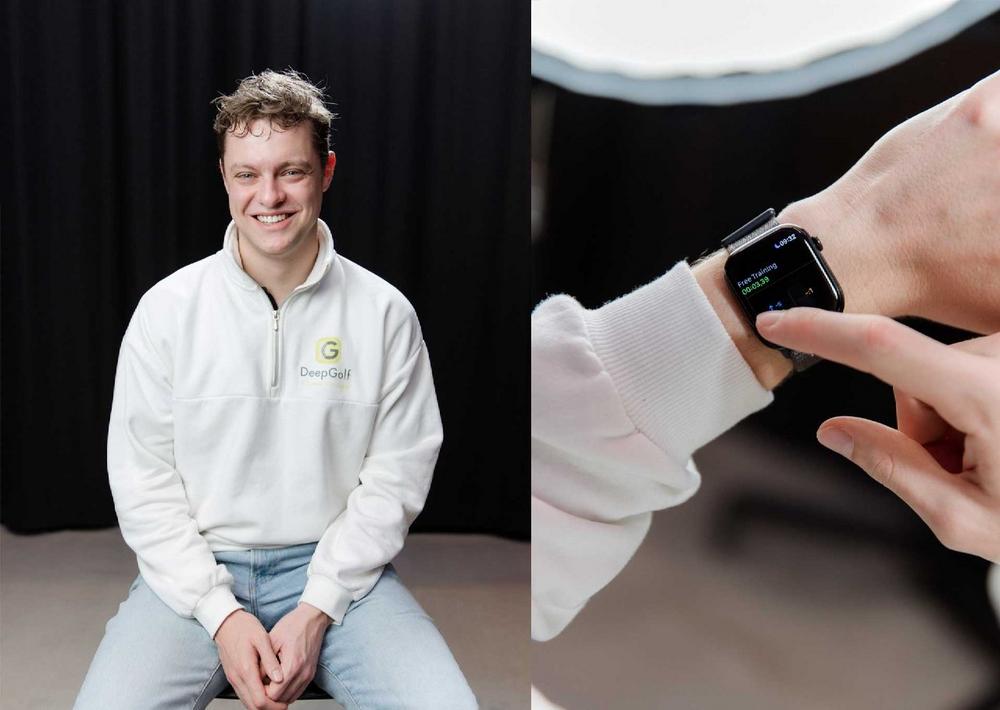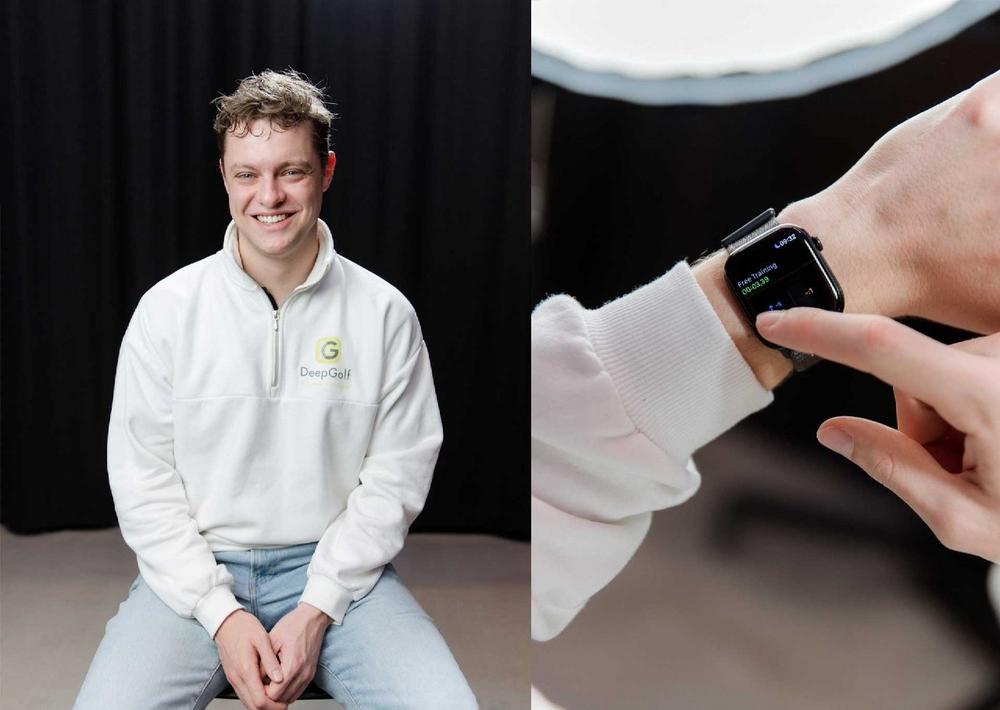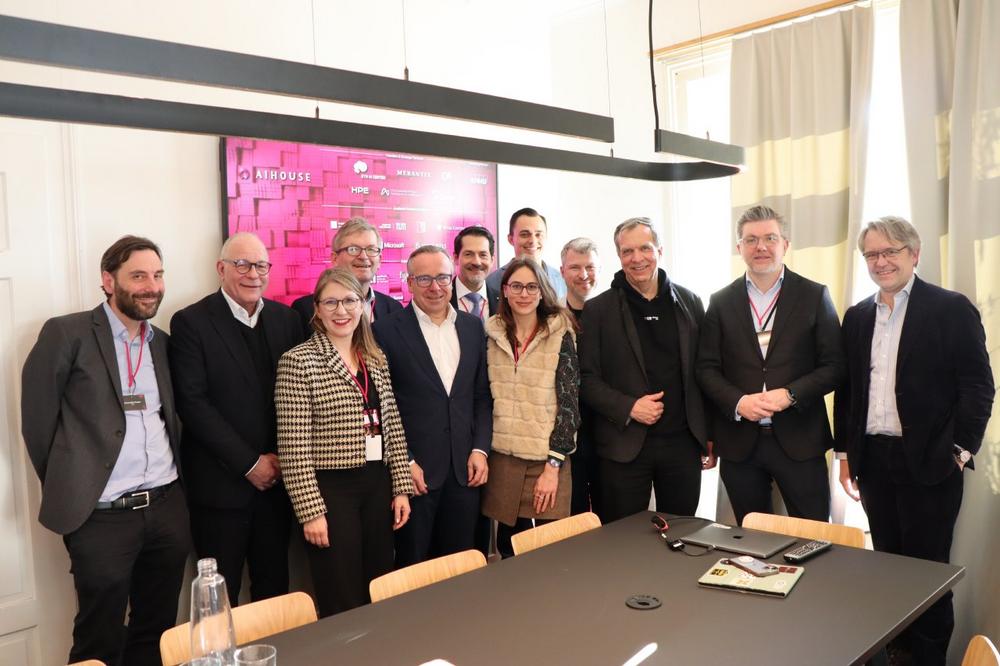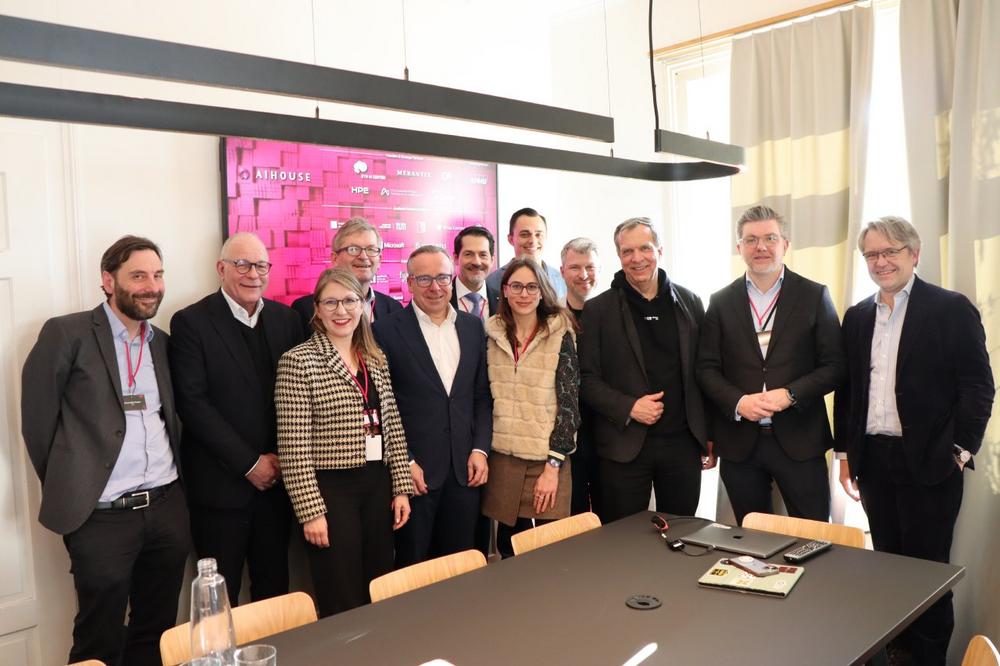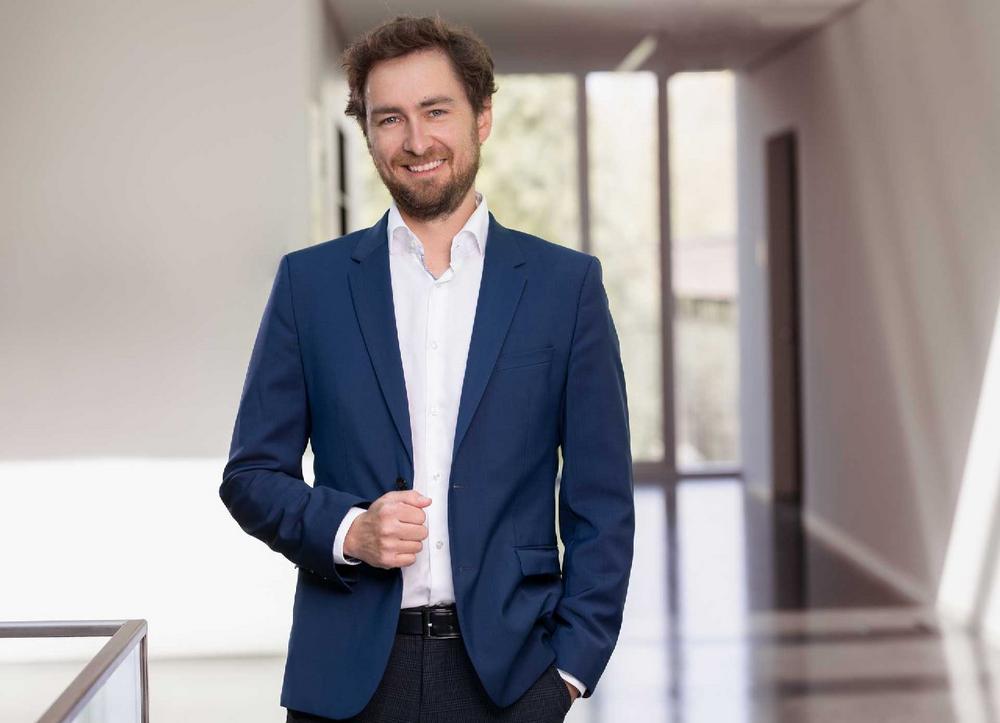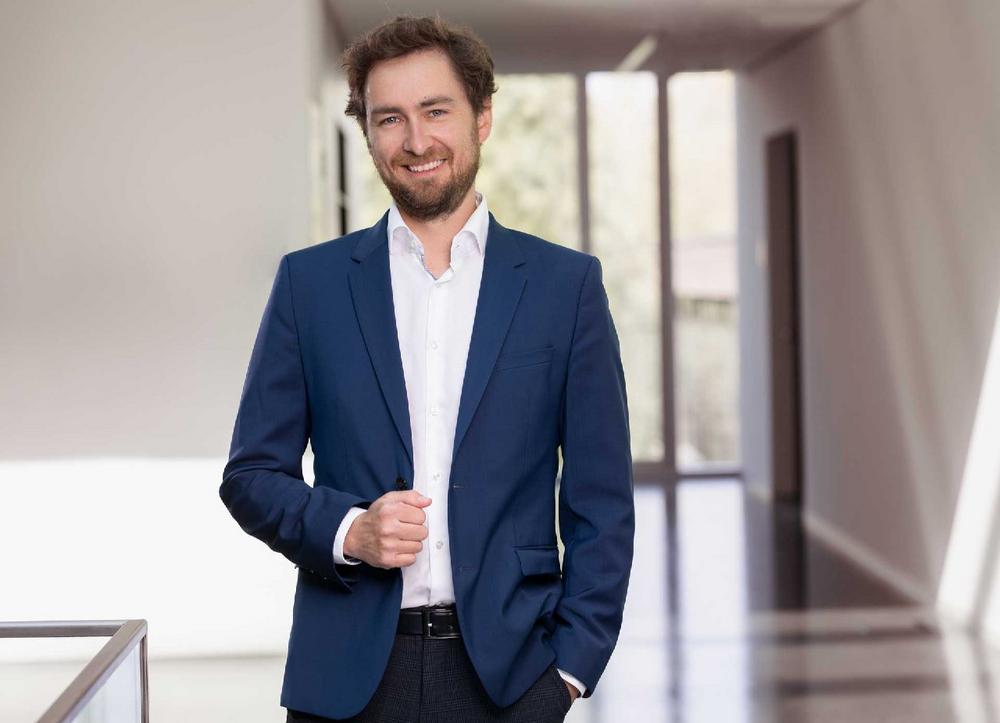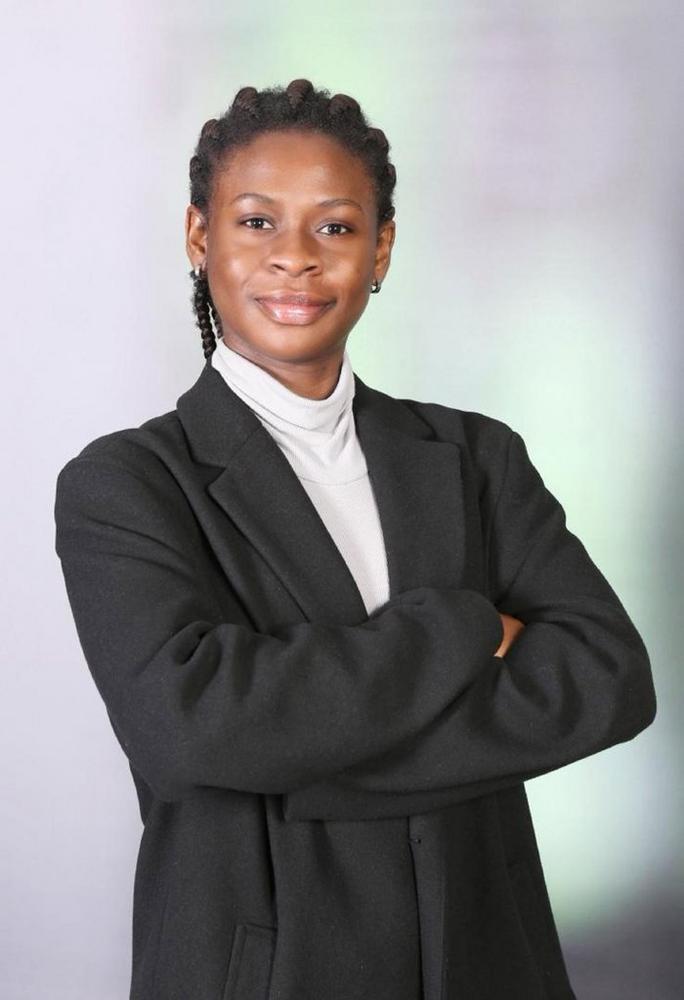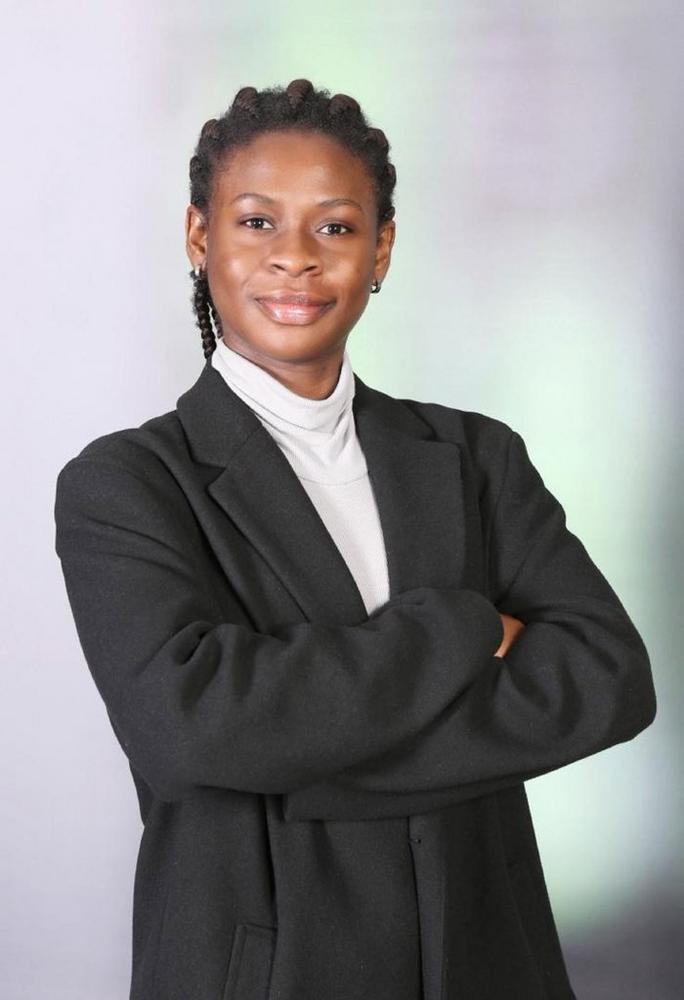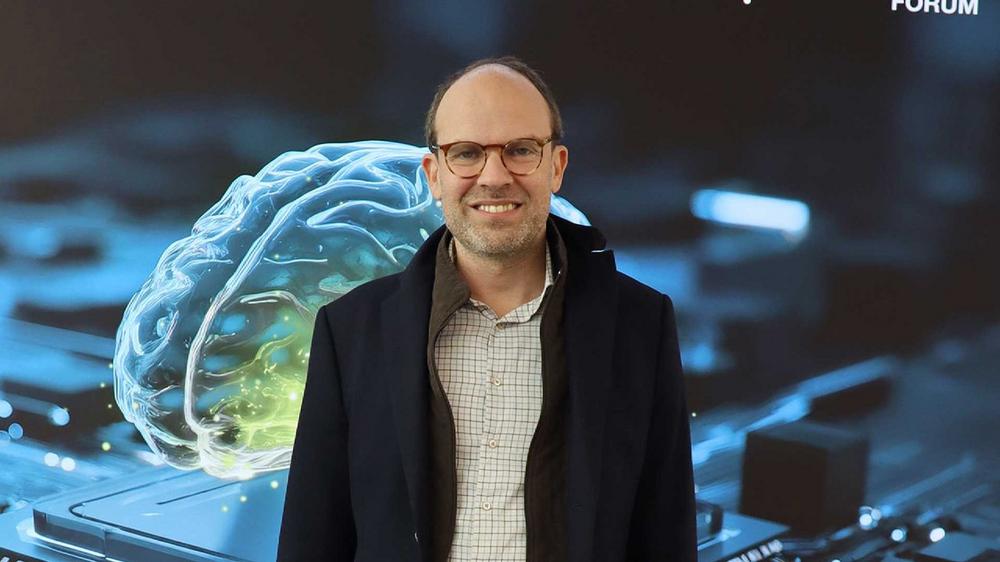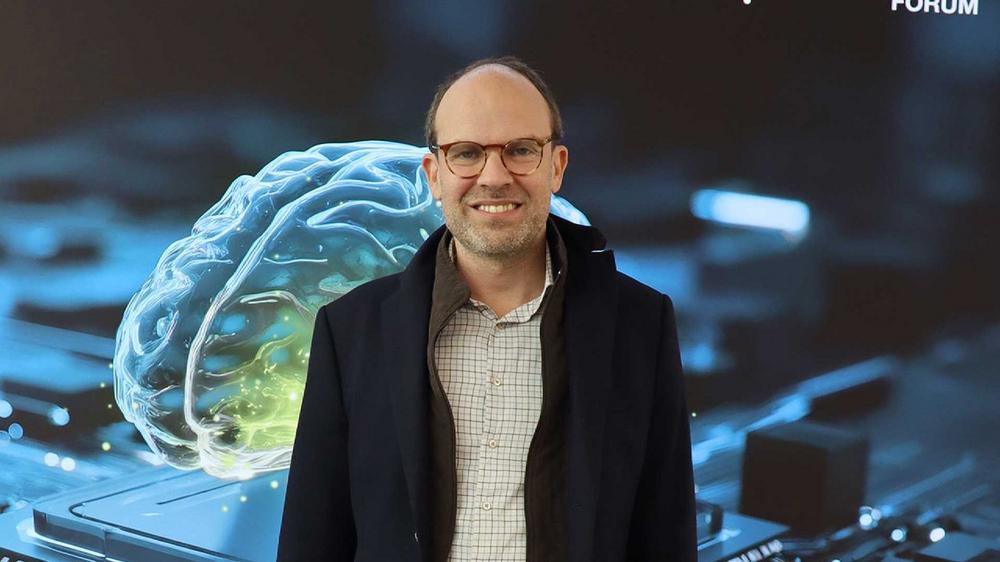-
The right golf swing with AI
With the right ‘wood’ or ‘iron’, golfers can, in the best-case scenario, get their balls onto the green and then hole them with as few strokes as possible. But every beginning is difficult, and in golf, that’s the tee shot. TUM graduate Jonas Dunkel has developed Deep Golf, an app that golfers can use to optimize their swing without any coaches or complicated setups, but with modern technology and AI. Born in Heilbronn, Jonas developed an interest in crafting, building and creating things at an early age, so after graduating from high school, he decided to study interaction design in Schwäbisch Gmünd: “To gain a deeper understanding into the theory,…
-
Zum richtigen Golf-Schwung mit KI
Mit dem richtigen „Holz“ oder „Eisen“ können Golfspieler ihre Bälle im besten Fall bis auf das Grün bringen und dann mit möglichst wenig Schlägen einlochen. Doch aller Anfang ist schwer und beim Golfsport ist das der Abschlag. TUM-Absolvent Jonas Dunkel hat mit Deep Golf eine App entwickelt, mit der Golfer ihren Schwung optimieren können, ganz ohne Trainer und kompliziertes Setup, sondern mit moderner Technologie und KI. Schon früh interessierte sich der gebürtige Heilbronner für Basteln, Bauen und dafür, Dinge zu erschaffen, daher entschied er sich nach dem Abitur, Interaktionsgestaltung in Schwäbisch Gmünd zu studieren. „Um tiefer in die Theorie einzutauchen, ging ich für meinen Master anschließend an die TUM und…
-
Intense discussions about the artificial intelligence of tomorrow
. AI House Davos 2026: International experts discussed the future of artificial intelligence. “A Human Intelligence Shift”: AI does not replace humans; human intelligence remains essential and must be redefined. Power Triangle Heilbronn–Munich–Zurich: Cross-institutional cooperation between TUM, ETH Zurich and the Heilbronn ecosystem drives innovation. Collaboration and shared strategy: Progress requires a balance between competition, cooperation and a common vision. Human in the loop: Human decision-making is key to trustworthy and responsible AI. While heads of state and government from around the world debated current geopolitical issues at the World Economic Forum in Davos, international experts met nearby at AI House Davos 2026. Researchers, business and political leaders, and start-up…
-
Intensive Diskussionen über die Künstliche Intelligenz von morgen
. AI House Davos 2026: Internationale Expertinnen und Experten diskutieren die Zukunft der Künstlichen Intelligenz. „A Human Intelligence Shift“: KI ersetzt den Menschen nicht; menschliche Intelligenz bleibt zentral und muss neu definiert werden. Power Triangle Heilbronn–München–Zürich: Institutionsübergreifende Zusammenarbeit zwischen TUM, ETH Zürich und dem Heilbronner Ökosystem als Schlüssel für Innovation. Kooperation und gemeinsame Strategie: Fortschritt entsteht durch die Balance aus Wettbewerb, Zusammenarbeit und einer gemeinsamen Vision. Human in the Loop: Menschliche Entscheidungshoheit ist Voraussetzung für vertrauenswürdige, verantwortungsvolle KI. Während beim Weltwirtschaftsforum in Davos Staats- und Regierungschefs aus aller Welt über aktuelle geopolitische Fragen debattierten, trafen sich in unmittelbarer Nähe internationale Expertinnen und Experten beim AI House Davos 2026. Forschende, Führungskräfte aus…
-
Majority in favor of cutting social spending in favor of defense
Most Germans fear a military conflict between Russia and a NATO member state and are in favor of increasing the size of the German armed forces and creating a European army. To this end, a majority want to increase defense spending and reduce social spending. This is shown by a survey conducted by the Technical University of Munich (TUM) and the Leipzig University. A large majority of Germans (70%) consider their country’s defense capabilities to be important. Nearly two-thirds (62%) of those surveyed fear a military conflict between Russia and a NATO member state. Nearly half (42%) are very concerned that such a conflict between Germany and Russia could occur…
-
Mehrheit für Kürzung von Sozialausgaben zugunsten Verteidigung
Die meisten Deutschen befürchten einen militärischen Konflikt zwischen Russland und einem NATO-Mitgliedstaat und sprechen sich für eine Aufstockung der Bundeswehr und eine europäische Armee aus. Dafür will eine Mehrheit den Anteil der Verteidigungsausgaben erhöhen und die Sozialausgaben reduzieren. Dies zeigt eine Umfrage der Technischen Universität München (TUM) und der Universität Leipzig. Einer großen Mehrheit der Deutschen (70 %) ist die Wehrhaftigkeit des Landes wichtig. Nahezu zwei Drittel der Befragten (62 %) befürchtet einen militärischen Konflikt zwischen Russland und einem NATO-Mitgliedstaat. Knapp die Hälfte (42 %) hat große Sorgen, dass es zu einem solchen Konflikt zwischen Deutschland und Russland auf deutschem Gebiet kommt. Das Forschungsteam fragte deshalb nach konkreten sicherheitspolitischen Maßnahmen.…
-
Deutschlandstipendium at Last Minute
Kirlin Mensah is studying information engineering at TUM Campus Heilbronn and has been selected as a Deutschlandstipendium (Germany Scholarship) recipient for 2025/26. Her voluntary support for the Dodoo Coding Club in her home country of Ghana is likely to have played an important role in this decision, as social engagement is a key selection criterion. Kirlin Mensah had a stroke of luck, or rather double luck. For some inexplicable reason, her acceptance letter for the Deutschlandstipendium ended up in her spam folder. She almost didn’t manage to let them know in time that she was accepting the scholarship. But everything worked out in the end, and the 21-year-old student at…
-
In letzter Sekunde zum Deutschlandstipendium
Kirlin Mensah studiert Information Engineering am TUM Campus Heilbronn und wurde als Deutschlandstipendiatin 2025/26 ausgewählt. Ihre ehrenamtliche Unterstützung des Dodoo Coding Club in ihrem Heimatland Ghana dürfte dabei eine wichtige Rolle gespielt haben – denn soziales Engagement ist ein entscheidendes Auswahlkriterium. Glück im Unglück oder besser gesagt doppeltes Glück – das hatte Kirlin Mensah. Denn auf unerklärliche Weise war ihre Zusage für das Deutschlandstipendium im Spam-Ordner gelandet. Beinahe hätte sie nicht rechtzeitig Bescheid gegeben, dass sie das Stipendium annimmt. Doch es ist alles gut gegangen und die 21-jährige Studentin am TUM Campus Heilbronn ist sehr dankbar für diese Unterstützung. Seit Oktober entlastet sie das Deutschlandstipendium bei den Lebenshaltungskosten. Mit großer…
-
A community of differences
An exchange program brought Carl Benedikt Frey to Oxford during his studies at a young age. There he found an academic home and has been active at the university for 13 years now, for almost three years as Professor of AI & Work. At a place where history and innovation come together. At last year’s Global Technology Forum (GTF), he met many like-minded people who share his passion for AI. Frey is convinced that technology and innovation are primarily driving continuous growth in human prosperity, but that technological change can also be a disruptive force. “Progress is not a natural thing, otherwise it would not have taken humanity 200,000 years…
-
Eine Gemeinschaft der Unterschiede
Ein Austauschprogramm brachte Carl Benedikt Frey in jungen Jahren während seines Studiums nach Oxford. Dort fand er ein akademisches Zuhause und ist seit mittlerweile 13 Jahren an der Universität aktiv, seit knapp drei Jahren als Professor für „AI & Work”. An einem Ort, an dem Geschichte und Innovation aufeinandertreffen. Beim Global Technology Forum (GTF) im vergangenen Jahr begegnete er vielen Gleichgesinnten, die seine Leidenschaft für KI teilen. Frey ist überzeugt, dass der Wohlstand der Menschheit durch Technologie und Innovation vor allem kontinuierlich wächst, aber dass technologischer Wandel auch eine disruptive Kraft entfalten kann. „Fortschritt ist nichts Natürliches, sonst hätte die Menschheit nicht 200.000 Jahre gebraucht, um die erste industrielle Revolution…

